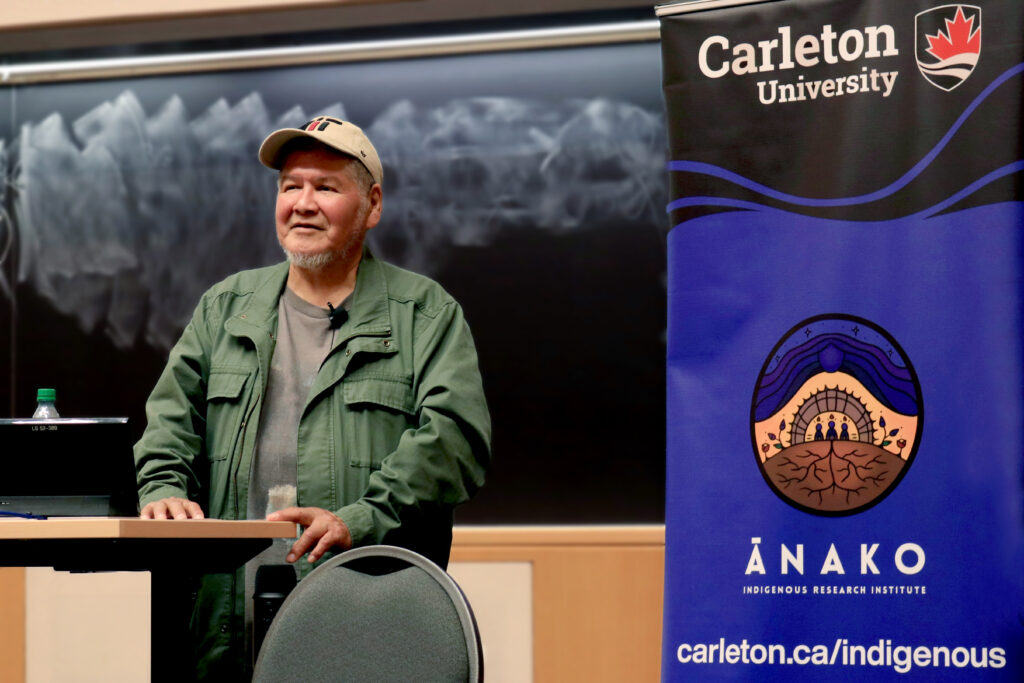Indigenous star-lore expert Wilfred Buck dazzles Carleton community with astronomical insights
Astronomy is considered by many to be a gateway into science education. There is something intrinsically fascinating about the world beyond our Earth, but western teaching skews heavily to theories and philosophies from the Eurocentric “founders” and pioneers.
Wilfred Buck, an Indigenous star-lore expert and member of the Opaskwayak Cree Nation, visited Carleton during the first week of October to engage with community members in sharing his research and insights into astronomy from an Indigenous cultural perspective.

For the past 16 years, Buck has worked with other Indigenous Knowledge Keepers to reawaken stories of the night sky and so far, he has helped to reclaim 38 Cree constellations. He says that in Canada, up to 85% of Indigenous knowledge has been lost through colonization.
Buck’s presentation was followed by four small group discussion sessions over the next two days. The events were organized by the Ānako Indigenous Research Institute and included an interview to be released as part of Carleton’s Collaborative Indigenous Learning Bundles.
Gabriela C. Jiménez, a master’s student at Carleton, has been working with Indigenous peoples and organizations for the last seven years. Since moving to Ottawa, she has been looking for activities to connect with Indigenous groups but found many events to be canceled, postponed, or online due to COVID-19 restrictions. When she heard Wilfred Buck would be coming to Carleton, she was eager to sign up, having recognized his name as a well-known astronomer and author.
“I particularly liked the way [Buck] connects western science with Indigenous knowledge,” Jiménez said. “All his knowledge in astronomy, and how it was a basic navigation tool for Indigenous peoples around the world, encourages me to learn more about it.”
Carleton’s Kinàmàgawin Report calls to share Indigenous teaching methods and ways of knowing and to work with Indigenous Knowledge Keepers.
Dr. Maria DeRosa, Dean of Science, also participated in the events led by Wilfred Buck. “Indigenous knowledge is an incredibly rich resource from generations of observation, contemplation, and understanding of the natural world,” she said. “Drawing upon all available knowledge is the foundation of rigorous science, so it is really important that we expose our students to the importance of these perspectives as we are training them to be the next generation of scientists.”
Dr. Kahente Horn-Miller, Associate Vice-President of Indigenous Teaching, Learning and Research, said she would love to see more people getting engaged in learning about Indigenous knowledge. Through the Ānako Indigenous Research Institute, Horn-Miller and her colleagues have been working to fulfil their mandate of “bringing together researchers, students, and Indigenous communities to foster dialogue and understanding of ethical, balanced, and respectful research with Indigenous peoples and in Indigenous territories.”
Members of the Carleton Community are encouraged to check out Carleton’s Indigenous Gathering Site to stay up to date with future events relating to Indigenous research talks, speaking events, and student symposiums around Carleton.